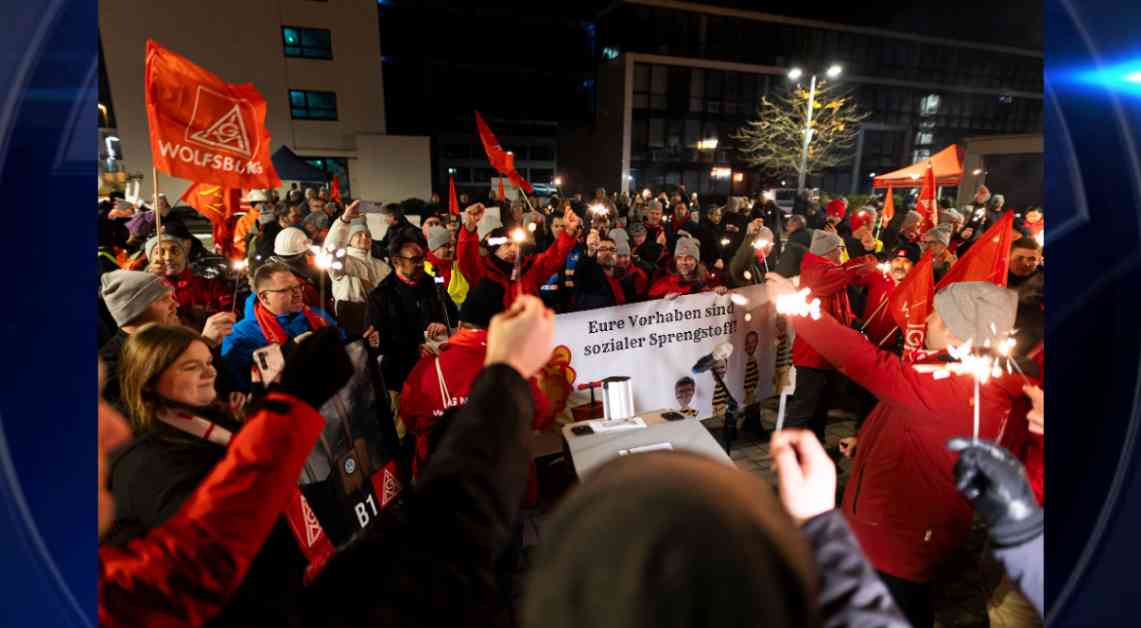Volkswagen Workers in Germany Go on Strike Amidst Labor Dispute
In a significant development, tens of thousands of Volkswagen workers in Germany are set to participate in strikes at various plants on Monday, following weeks of intense collective bargaining negotiations. The labor union IG Metall announced that these strikes will be the largest walkouts at the carmaker’s domestic operations since 2018.
What Led to the Strikes?
The walkouts come after Volkswagen refused to rule out mass layoffs and potential plant closures in Germany, citing the need to bolster its financial position in the face of competition from China and weaker demand in Europe. The expiration of a “peace obligation” between the company and workers on Saturday paved the way for these strikes, which are expected to last several hours.
IG Metall’s chief negotiator, Thorsten Groeger, emphasized the gravity of the situation, stating, “If necessary, this will become the toughest wage dispute Volkswagen has ever seen.” He criticized the management for exacerbating the conflict by failing to address workers’ concerns during negotiations.
The Impact on Volkswagen
This labor dispute poses a significant challenge for Volkswagen, which has already experienced a 20% decline in operating profit for the first nine months of the year. The company’s flagship brand has struggled, and vehicle sales have dipped, especially in China, where Volkswagen is facing stiff competition from local electric vehicle brands.
In response to the strikes, a Volkswagen spokesperson highlighted the company’s efforts to minimize disruptions to its operations and customers. While acknowledging the employees’ right to engage in warning strikes, the spokesperson reiterated Volkswagen’s commitment to finding a constructive solution through dialogue.
Looking Ahead
The ongoing negotiations between Volkswagen management and labor representatives will enter their fourth round on December 9. IG Metall has indicated that workers are willing to make concessions, including forfeiting pay increases, to secure assurances from the company regarding plant closures and executive bonuses.
As the situation unfolds, the possibility of longer and more severe strikes looms, potentially impacting Volkswagen’s production and financial stability. The outcome of these negotiations will not only shape the future of Volkswagen in Germany but also have broader implications for the automotive industry in Europe.
Conclusion
The Volkswagen worker strikes in Germany underscore the complex dynamics between labor and management in the automotive sector. As both sides navigate challenging economic conditions and shifting market dynamics, the resolution of this labor dispute will be crucial in determining the company’s future direction and the well-being of its employees. Stay tuned for further updates on this evolving story.


